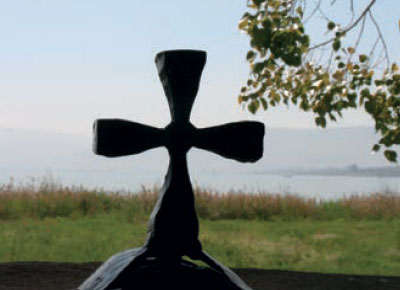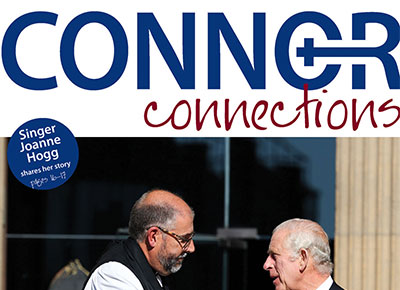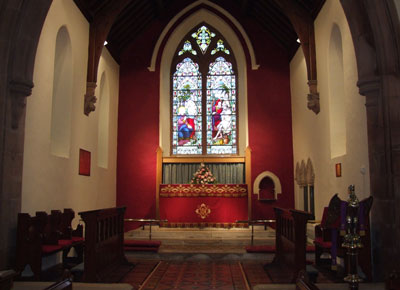Bishop of Connor reflects on WCC Central Committee meeting
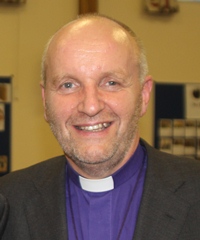 The Bishop of Connor, the Rt Rev Alan Abernethy, was in Geneva in July for a meeting of the Central Committee of the World Council of Churches (WCC).
The Bishop of Connor, the Rt Rev Alan Abernethy, was in Geneva in July for a meeting of the Central Committee of the World Council of Churches (WCC).
Bishop Alan was elected to the committee when he attended the 10th Assembly of the WCC in Busan, Republic of Korea.
The overarching theme of the Central Committee meeting in Geneva was ‘A pilgrimage of justice and peace.’
Church of Ireland Press Officer Paul Harron spoke to Bishop Alan about his experience in Geneva. This interview was also published in the Church of Ireland Gazette, 25 July 2014)
PH: What does the central committee do?
AA: It’s like the standing committee of the WCC, meeting four times between assemblies – every other year; there’s also an executive committee which meets at least once a year. The central committee carries out the visions and policies of the assembly and determines the strategies to do so; it also aims to deepen fellowship between the member churches, bringing greater ecumenical coherence and providing opportunities to consult with one another on issues of mutual concern.
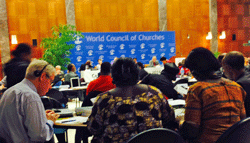 PH: How does it work in practice?
PH: How does it work in practice?
AA: Each member is assigned to a specific committee which deliberates in its area and then reports back to a full–group ‘hearing’ for further discussion, which leads to revisions and then approval of reports on the final day. As I’ve said before, there is an admirable WCC system of responding to debates by way of raising ‘agree’ or ‘disagree’ cards (orange and blue respectively) which allows inclusivity of general response without recourse to clapping or vocal dissent. I think this process means that it’s not just the most strident voices which get heard in debates and there’s much to recommend it.
I sit on the public issues committee. We focused on a number of concerns – for the full range of outcomes – see www.oikoumene.org – however, notable among them were expression of deep concern over the degrading state of human rights in Eritrea; the violence in Israel and Palestine and how to demonstrate Christian responsibility; and the situation in Iraq and affirmation of the churches there. The other major issue was drafting a statement on a nuclear–free world which is, of course, complex: while there is agreement on nuclear weapons being irreconcilable with real peace, there are differences of opinion on nuclear energy.
PH: How can these big policy questions actually make any impact at local level?
AA: It is for each church to look at its own needs in its own contexts but also to draw on global perspectives. While the policy statements may disappoint some – drawing as they do on a consensus approach – that the churches have come together and said something is encouraging in itself.
And it is important that churches engage with and are challenged by big issues – so these WCC documents can act as ‘springboards’ for local engagement. Other fascinating discussions included considering Christian identity in a multi–religious world – ‘who do we say that we are?’ It was humbling to hear of the impact of climate change and to think more deeply about stewardship of creation. We heard from some island–people whose habitat is being destroyed and simply won’t be there in 20 years’ time – yet churches are so often silent on this. It is also profoundly challenging to hear from S. Sudan and the genuine risk of famine … how do we show concern when it slips off the news agenda?
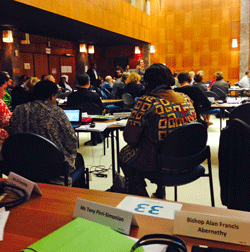 PH: Any significant moments?
PH: Any significant moments?
AA: It is exhilarating to study, pray, worship and be among brothers and sisters in Christ – as one, whatever our differences: a beautiful picture of what the church is. To hear from each other in sessions made up of such a mix of people yet finding ways of hearing all the voices is intriguing. And we all have our own perspectives, so very much filtered by how we see the past.
An especially important moment, greeted with warm applause, was the acceptance of the application for re–admission from the Dutch Reformed Church in South Africa, having repented and sought forgiveness for previously attempting to justify apartheid.
© Copyright The Church of Ireland Diocese of Connor 2025 | Web Design by LD2.digital
